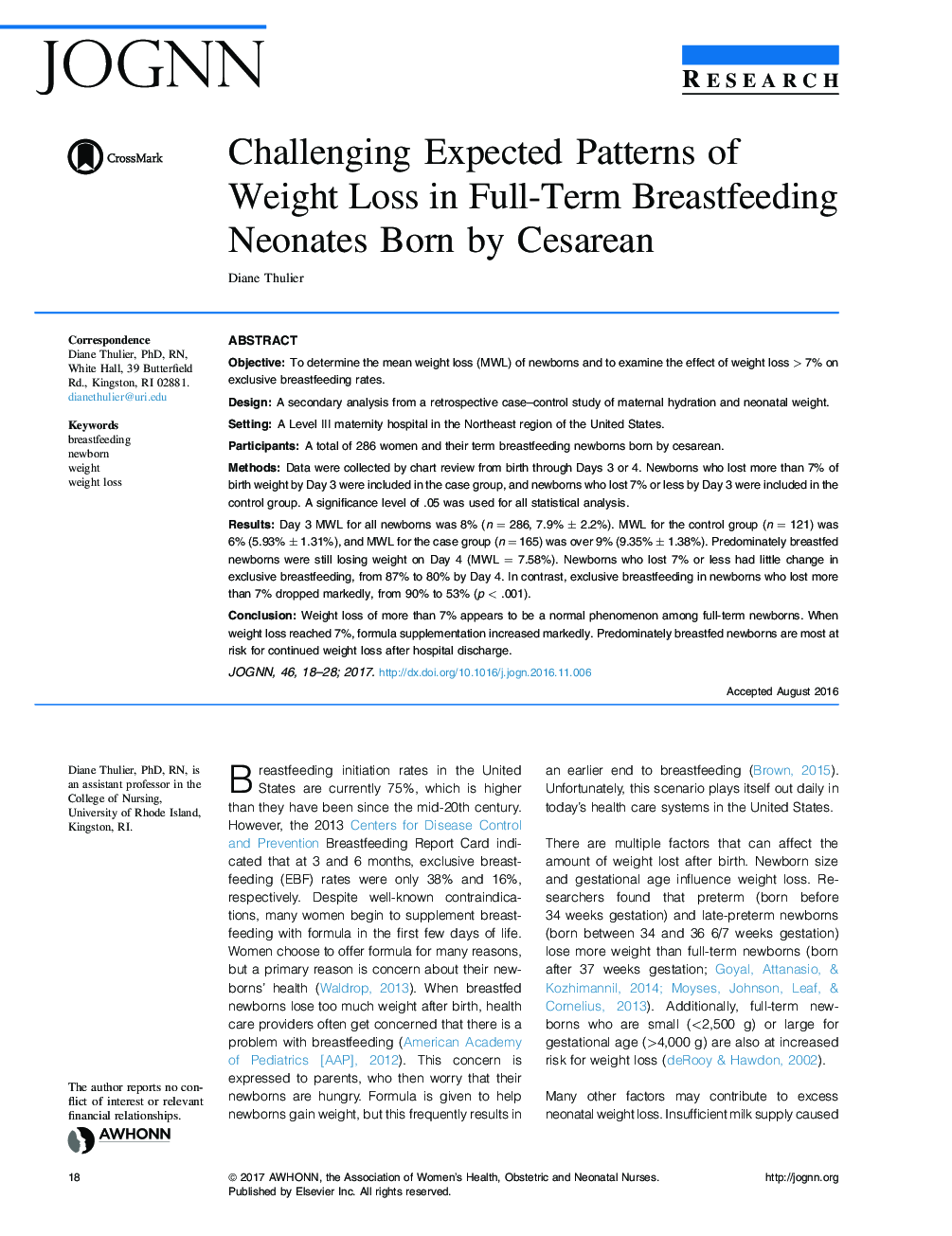| Article ID | Journal | Published Year | Pages | File Type |
|---|---|---|---|---|
| 5565623 | Journal of Obstetric, Gynecologic & Neonatal Nursing | 2017 | 11 Pages |
ObjectiveTo determine the mean weight loss (MWL) of newborns and to examine the effect of weight loss > 7% on exclusive breastfeeding rates.DesignA secondary analysis from a retrospective case-control study of maternal hydration and neonatal weight.SettingA Level III maternity hospital in the Northeast region of the United States.ParticipantsA total of 286 women and their term breastfeeding newborns born by cesarean.MethodsData were collected by chart review from birth through Days 3 or 4. Newborns who lost more than 7% of birth weight by Day 3 were included in the case group, and newborns who lost 7% or less by Day 3 were included in the control group. A significance level of .05 was used for all statistical analysis.ResultsDay 3 MWL for all newborns was 8% (n = 286, 7.9% ± 2.2%). MWL for the control group (n = 121) was 6% (5.93% ± 1.31%), and MWL for the case group (n = 165) was over 9% (9.35% ± 1.38%). Predominately breastfed newborns were still losing weight on Day 4 (MWL = 7.58%). Newborns who lost 7% or less had little change in exclusive breastfeeding, from 87% to 80% by Day 4. In contrast, exclusive breastfeeding in newborns who lost more than 7% dropped markedly, from 90% to 53% (p < .001).ConclusionWeight loss of more than 7% appears to be a normal phenomenon among full-term newborns. When weight loss reached 7%, formula supplementation increased markedly. Predominately breastfed newborns are most at risk for continued weight loss after hospital discharge.
